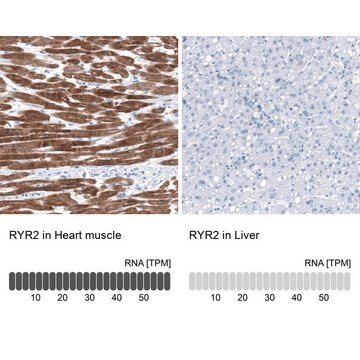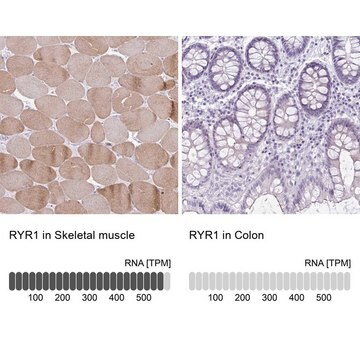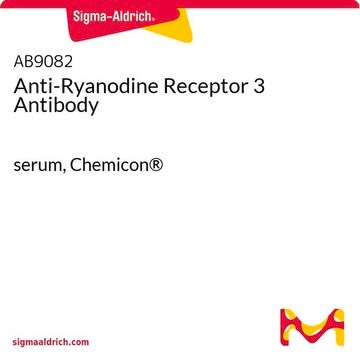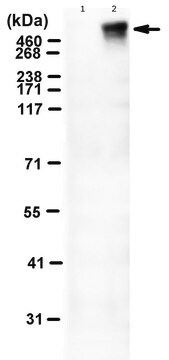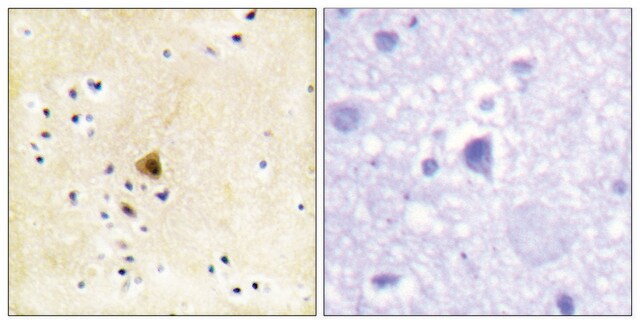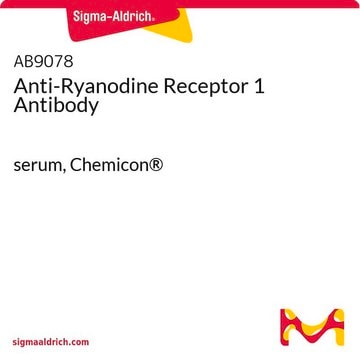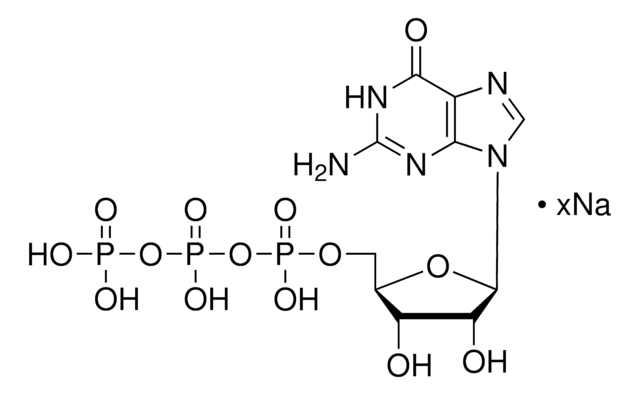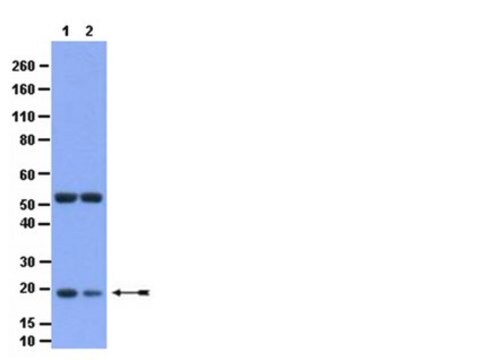AB9080
Anti-Ryanodine Receptor 2 Antibody
serum, Chemicon®
Synonym(s):
Anti-ARVC2, Anti-ARVD2, Anti-RYR-2, Anti-RyR, Anti-VACRDS, Anti-VTSIP
About This Item
Recommended Products
biological source
rabbit
Quality Level
antibody form
serum
antibody product type
primary antibodies
clone
polyclonal
species reactivity
mouse, human, rat
manufacturer/tradename
Chemicon®
technique(s)
immunocytochemistry: suitable
immunohistochemistry: suitable
western blot: suitable
NCBI accession no.
UniProt accession no.
shipped in
dry ice
target post-translational modification
unmodified
Gene Information
human ... RYR2(6262)
Specificity
Immunogen
Application
Neuroscience
Ion Channels & Transporters
Signaling Neuroscience
Immunocytochemistry: 1:1,000
Immunohistochemistry: 1:1,000 overnight at 2-8°C using a fluorescently labeled secondary antibody. Suggested fixative is 4% paraformaldehyde in 0.1M PBS (one hour). Suggested permeablization method is 0.05% Triton X-100 in dilution buffer. Suggested blocking buffer is 10% normal goat serum (or same host as your secondary antibody) and 1% BSA in 0.1M PBS. Suggested dilution buffer is 1% normal goat serum (or same host as your secondary antibody) and 1% BSA in 0.1M PBS.
Optimal working dilutions must be determined by the end user.
Physical form
Storage and Stability
Analysis Note
Western blot = adult mouse cardiac muscle or brain (adult mouse skeletal muscle will be negative).
IHC = adult mouse cerebellum Purkinje cells (adult mouse cerebellum granular cells will be negative).
Legal Information
Disclaimer
Not finding the right product?
Try our Product Selector Tool.
recommended
Storage Class Code
10 - Combustible liquids
WGK
WGK 1
Flash Point(F)
Not applicable
Flash Point(C)
Not applicable
Certificates of Analysis (COA)
Search for Certificates of Analysis (COA) by entering the products Lot/Batch Number. Lot and Batch Numbers can be found on a product’s label following the words ‘Lot’ or ‘Batch’.
Already Own This Product?
Find documentation for the products that you have recently purchased in the Document Library.
Our team of scientists has experience in all areas of research including Life Science, Material Science, Chemical Synthesis, Chromatography, Analytical and many others.
Contact Technical Service